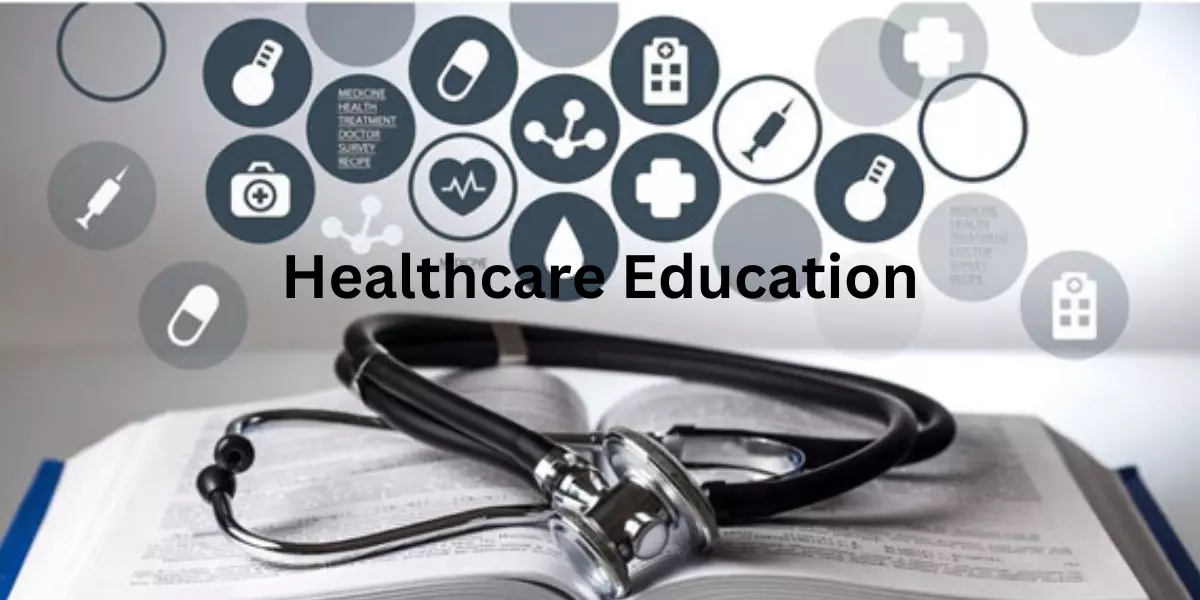In our rapidly evolving world, the field of healthcare is continuously adapting and expanding. The demand for skilled and knowledgeable healthcare professionals is on the rise, necessitating access to high-quality educational resources. The recent surge in medical education tools is transforming the way future professionals are trained and inspired. In this article, we will delve into some of the latest and most innovative medical education resources that are shaping the future of healthcare.
Virtual Learning Environments: Adapting to the Changing Landscape
One notable development in healthcare education is the widespread adoption of virtual learning environments. These platforms empower students to access course materials, participate in interactive discussions, and attend virtual lectures. The significance of virtual learning environments became particularly evident during the COVID-19 pandemic when traditional in-person classes became impractical. These platforms have not only enabled the continuation of education but have also allowed students to stay on course towards their future careers in healthcare.
Gamification: Transforming Learning into an Engaging Experience
Gamification has emerged as a powerful trend in medical education. By integrating game-like elements and mechanics into the learning process, educators are making the educational journey more engaging for students. Elements such as points, rewards, and competition not only enhance understanding but also contribute to long-term information retention. The incorporation of gamification techniques in medical education is a testament to the evolving strategies employed to cultivate a dynamic and interactive learning environment.
Simulation Technology: Bridging the Gap Between Theory and Practice
Simulation technology has been a cornerstone in medical training for years, but recent advancements have elevated its importance. Students can now practice various medical procedures in a simulated environment before encountering them in real-life situations. This not only boosts their confidence but also allows for the refinement of essential skills. Simulation technology is proving to be an invaluable tool in preparing future healthcare professionals for the challenges they may face in their careers.
Artificial Intelligence (AI): Personalizing the Learning Experience
The integration of artificial intelligence into healthcare education is revolutionizing the learning experience. AI-powered platforms analyze individual students’ strengths, weaknesses, and learning styles, tailoring the educational content accordingly. This personalized approach helps identify and fill knowledge gaps, ensuring that students are well-prepared for the demands of their future profession. By saving time and effort in studying, AI is becoming an essential component in the arsenal of medical education resources.
Specialized Training Courses: Nurturing Expertise in Specific Fields
The landscape of medical education is witnessing a surge in specialized training courses catering to specific fields within healthcare. For example, aspiring MRI technicians can now access comprehensive online courses that provide the necessary knowledge and skills. These specialized courses equip future medical professionals with the expertise needed to stay ahead of the curve and adapt to new technologies and practices.
Online Resources: Transforming Accessibility and Affordability
The advent of online resources has significantly enhanced the learning experience for aspiring healthcare professionals. With just a few clicks, students can access a plethora of medical textbooks, videos, and study materials. This not only saves them money on traditional textbooks but also allows them to stay abreast of up-to-date information from anywhere in the world. The accessibility of online resources is democratizing education, making quality learning materials available to a wider audience.
Mobile Applications: Learning on the Go
The rise of mobile applications has brought unprecedented convenience to the learning experience. Students can access study materials, interactive quizzes, and even communicate with peers and professors using smartphone applications. These applications also offer features such as updates, note-taking capabilities, and progress tracking, helping students stay organized and on top of their studies. In an era where smartphones are ubiquitous, mobile applications have become an indispensable tool in the toolkit of future healthcare professionals.
Embracing a Bright Future in Healthcare Education
As we look ahead, the future of healthcare education appears bright and exciting. The evolution of these medical education resources is providing future healthcare professionals with the tools they need to meet the ever-growing demands of the field. From virtual learning environments to AI-powered platforms and mobile applications, these innovations are shaping a promising future for the healthcare industry. As we continue to explore and embrace these advancements, we can be confident that the healthcare professionals of tomorrow will be well-equipped to navigate the challenges and opportunities that lie ahead.










